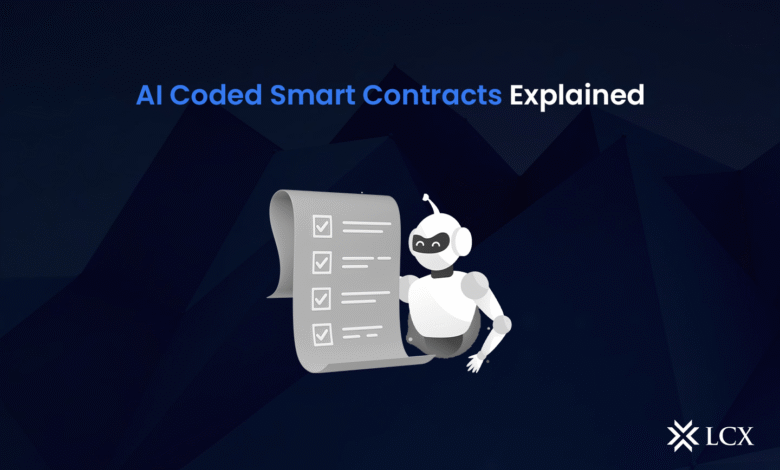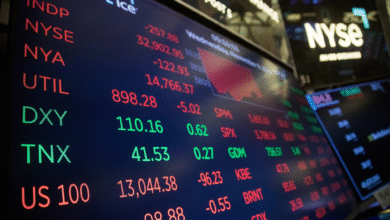AI and Smart Contracts: Legal Implications for Crypto

AI and smart contracts are transforming the landscape of cryptocurrency by blending advanced technology with decentralized agreements. These self-executing contracts, now enhanced by artificial intelligence, offer efficiency and scalability like never before. However, this innovative integration raises pressing legal implications that leaders in the crypto space must navigate. As the intersection of AI and blockchain technology continues to evolve, so too do the legal questions surrounding liability, enforceability, and compliance with existing frameworks. Legal practitioners and crypto entrepreneurs need to stay informed about the smart contracts in crypto trends and the blockchain technology legal issues that arise as AI-driven smart contracts become commonplace.
The merger of machine learning algorithms and blockchain-based agreements signals a new era for digital transactions. With terms like automated contracts and AI-enhanced agreements entering the conversation, the implications of crypto and AI integration are becoming increasingly significant. As these technologies advance, they present unique challenges regarding regulatory compliance and legal accountability. Stakeholders must consider the implications of automated systems that redefine traditional legal norms in a digital economy. Therefore, understanding the nuances of these innovations is essential for both developers and legal advisors within the evolving landscape of digital asset commerce.
The Legal Landscape of AI and Smart Contracts
As AI continues to influence various sectors, the legal implications of integrating artificial intelligence with smart contracts are front and center in the crypto domain. Smart contracts, which are automatically executed on blockchain platforms, can dramatically enhance operational efficiency and transaction accuracy. However, the legal landscape remains complex, as questions arise regarding accountability and liability when AI is involved in contract creation. For instance, if a vulnerability in an AI-generated contract results in financial loss, determining liability can be challenging, blurring the line between software authors and AI developers.
Moreover, the evolving nature of technology calls for a diligent examination of current legal frameworks. Jurisdictions are increasingly recognizing smart contracts as enforceable agreements, provided they meet established legal criteria. Still, when AI systems play a role in generating or executing these contracts, issues of intent and comprehension emerge. Legal professionals must be prepared to navigate these complexities, ensuring compliance with existing contract law while advocating for regulatory advancements that address AI’s unique impacts.
AI-Driven Smart Contracts: Opportunities and Risks
The utilization of AI in smart contracts introduces both opportunities and significant risks for businesses in the crypto space. AI-driven systems offer enhanced functionalities, such as real-time auditing capabilities and automated compliance checks, which can improve trust and security in transactions. For example, advanced algorithms can swiftly analyze vast datasets to identify potential vulnerabilities and ensure that smart contracts adhere to the latest regulatory standards. As such tools become more prevalent, they can not only streamline operations but also encourage wider adoption of blockchain technologies among traditional businesses.
However, the risks associated with AI-driven smart contracts cannot be overlooked. The increased reliance on automated systems raises questions about accountability and transparency. If an AI produces flawed code, it may lead to severe legal and financial repercussions. The challenge lies in establishing a legal framework that holds developers accountable while also fostering innovation. As the intersection of AI and smart contracts evolves, legal professionals must stay informed about both technological advancements and relevant legal precedents to adequately advise their clients.
Understanding Blockchain Technology Legal Issues
Blockchain technology presents unique legal challenges that are magnified when combined with AI. Issues concerning data privacy, intellectual property rights, and regulatory compliance are paramount, as the decentralized nature of blockchain disrupts traditional legal paradigms. Legal practitioners must grapple with how existing laws apply to these new technologies, especially when considering cross-border transactions which may involve varying legal systems. This necessitates a detailed understanding of blockchain-related legal issues to navigate potential disputes effectively.
Incorporating AI into blockchain technology further complicates these issues. Automated systems may inadvertently create barriers to legal recourse if they obscure the accountability of involved parties. As smart contracts become more sophisticated and widespread, the necessity for clear legal guidelines becomes imperative. Legal scholars and practitioners should advocate for updated regulations that address the intersection of AI, blockchain, and existing laws to ensure efficient dispute resolution and enforceability.
Ethical Considerations in AI and Smart Contracts
The integration of AI in legal processes, particularly concerning smart contracts, raises critical ethical considerations for lawyers and legal advisors. While these technologies can enhance efficiency, they should not replace the nuanced judgment that human legal professionals provide. The American Bar Association’s Model Rules of Professional Conduct highlight the importance of attorney supervision in all legal work. Blindly trusting AI-generated outputs can expose professionals to ethical dilemmas and potential malpractice claims, emphasizing the need for critical oversight.
Moreover, as legal advisors adopt AI tools in their workflows, they must ensure that their use complies with the ethical standards of their profession. Training in proper AI utilization while maintaining competent legal practices is essential. For legal professionals operating in the rapidly evolving domain of crypto and AI, understanding both the advantages and challenges of technology is crucial in upholding their ethical responsibilities.
Navigating Cross-Border Regulatory Challenges with AI
As AI technology gains traction within the crypto sector, legal practitioners must be aware of the complex regulatory landscape that varies from one jurisdiction to another. Regulatory bodies like the European Union are taking proactive measures, such as the AI Act, which introduces comprehensive measures regarding AI systems. This impacts how blockchain developers approach compliance and risk management. Navigating these laws requires a keen understanding of international regulatory frameworks to minimize legal exposure for clients engaged in cross-border projects.
Furthermore, countries such as Singapore and Switzerland are developing frameworks that seek to balance innovation with consumer protection. The divergence between regulatory requirements can create complications for companies operating in multiple jurisdictions, highlighting the need for adaptive legal strategies. Legal advisors must not only remain informed about international developments but also provide guidance on how clients can align with varying regulations while pursuing globalization and expansion in crypto technology.
The Future of AI and Smart Contracts in Law
The convergence of AI and smart contracts is poised to shape the future of legal practice and the broader financial landscape. As more firms adopt AI-driven solutions for drafting and auditing smart contracts, their contributions can lead to significant advancements in speed and accuracy within the transactions. This transition, however, comes with notable implications for the legal field, demanding a reevaluation of existing protocols and norms governing legal practice in the digital age.
Future developments in this arena necessitate that legal professionals stay ahead of technological trends while fostering a collaborative environment among technologists, legal experts, and regulators. Establishing a solid foundation for AI’s role in legal practice will be key in mitigating potential risks while harnessing its benefits. As the landscape evolves, proactive engagement will be crucial for legal advisors to remain effective advocates for their clients.
Practical Guidance for Legal Professionals in AI and Smart Contracts
In light of the rapidly changing environment surrounding AI and smart contracts, legal professionals should adopt practical strategies to guide their clients effectively. Keeping abreast of technological advances in AI can help lawyers anticipate emerging issues and address potential risks before they escalate. Engaging in continuous education about developments in blockchain technology and AI will equip practitioners with the necessary tools to navigate these complex interactions.
Additionally, legal advisors must prioritize transparency and communication with clients regarding the use of AI in legal processes. This can include documenting how AI tools are employed to draft or audit smart contracts and conducting independent audits to validate AI outputs. By emphasizing these practices, legal professionals can enhance client trust and minimize risks associated with AI implementation.
The Role of AI in Enhancing Compliance in Crypto Transactions
Artificial intelligence can significantly bolster compliance efforts within the crypto sector by utilizing advanced algorithms to monitor transactions for potential regulatory violations. By automating the compliance process, AI facilitates real-time analysis of data, which enables companies to swiftly identify and address any inconsistencies that may arise. This not only ensures adherence to legal standards but can also cultivate a culture of compliance within organizations.
Incorporating AI into compliance frameworks allows for more extensive data collection and analysis, enhancing the identification of patterns that could indicate fraudulent activities. However, with these advancements come new complications surrounding data privacy and protection. Legal professionals must stay vigilant about these emerging challenges to ensure their clients uphold regulatory obligations while benefiting from the advantages AI offers.
Engaging with Emerging Regulatory Frameworks for AI and Crypto
As regulatory bodies begin to share insights regarding the legal implications of AI in smart contracts, it is vital for legal practitioners to engage proactively with these developments. Participating in discussions around proposed regulations can provide valuable perspectives that shape future legal standards governing the integration of AI and blockchain technology. By contributing to these conversations, lawyers can advocate for regulations that balance innovation and consumer protection.
Moreover, remaining informed about global regulatory changes impacts how firms operate in the blockchain space. Regulatory changes can have ripple effects across borders, influencing compliance and operational strategies. Legal professionals should emphasize the importance of adapting businesses to comply with these evolving frameworks, while also staying ahead of potential legal challenges posed by AI in crypto transactions.
Frequently Asked Questions
What are the legal implications of AI-driven smart contracts in the crypto space?
The legal implications of AI-driven smart contracts in crypto involve questions of liability, enforceability, and accountability. As AI assists in drafting and auditing smart contracts, it raises issues about whether the developer or the AI tool provider is liable for vulnerabilities that lead to financial loss. These are complex questions that current legal frameworks are only beginning to address.
How do smart contracts in crypto utilize AI technology in their development?
Smart contracts in crypto are increasingly being developed with AI technology, allowing for quicker generation and review of code. AI models can identify vulnerabilities and optimize contract performance, making it easier for non-experts to participate in smart contract development. However, this also raises concerns about the adequacy of AI’s understanding of contract intent.
What are the enforceability challenges of AI-generated smart contracts?
Enforceability challenges of AI-generated smart contracts stem from ambiguity regarding intent and comprehension. If parties do not fully understand the AI-generated code, disputes may arise regarding the contract’s validity. Courts may apply existing jurisprudence, but the unique nature of AI involvement complicates these matters.
How could current and future regulations affect crypto and AI integration?
Current and future regulations, such as the U.S. Commodity Futures Trading Commission (CFTC) and SEC’s oversight, are likely to increasingly address AI-assisted smart contracts. Cross-jurisdictional regulations, like the EU’s AI Act, will also impose requirements on AI systems, influencing how developers integrate AI into crypto applications.
What steps should legal advisors take when dealing with AI and smart contracts?
Legal advisors should document human oversight of AI tools, conduct independent code audits to validate outputs, and update disclosures regarding risks associated with AI in smart contract development. Staying informed about evolving regulations from entities like the SEC and CFTC will also be crucial.
Why is ethical responsibility important for lawyers using AI in crypto cases?
Ethical responsibility is vital for lawyers using AI in crypto cases due to the potential for malpractice claims arising from over-reliance on AI-generated outputs. The American Bar Association emphasizes that attorneys must maintain supervision and ensure competence in their legal practices, even when using AI tools to streamline workflows.
What advantages does AI offer for auditing smart contracts within the crypto industry?
AI offers significant advantages for auditing smart contracts in the crypto industry, including rapid identification of vulnerabilities, enhancement of security measures, and efficiency in the auditing process. However, it also raises questions about accountability for any flaws discovered in AI-performed audits.
What is the relationship between blockchain technology legal issues and AI-driven smart contracts?
The relationship between blockchain technology legal issues and AI-driven smart contracts revolves around the evolving regulatory landscape. As blockchain transactions become more complex with AI integration, legal practitioners must navigate issues related to liability, enforceability, and the compliance of these technologies with existing laws.
How does AI integration impact the development of decentralized finance (DeFi) projects?
AI integration significantly impacts DeFi project development by allowing for the automated creation and optimization of smart contracts, improving risk management, and enhancing user interactions. However, it introduces new legal questions about the accountability of AI in the coding process and its implications for compliance.
What future trends should we expect in the legal landscape surrounding AI and smart contracts?
Future trends in the legal landscape surrounding AI and smart contracts may include the establishment of clearer regulatory frameworks, increased scrutiny from regulatory bodies, and evolving case law that addresses the unique challenges posed by integrating AI into contractual agreements in the crypto space.
| Key Points | Details |
|---|---|
| AI and Smart Contracts Overview | AI and blockchain technology intersect to enhance the efficiency and scalability of smart contracts. |
| AI Role in Development | AI tools allow rapid generation and auditing of smart contracts, leading to questions of accountability. |
| Legal Enforceability | Smart contracts are recognized as binding if they meet contract law standards, with AI involvement raising intent and understanding dilemmas. |
| Ethical Implications for Lawyers | Legal professionals must ensure competent oversight while using AI to avoid malpractice risks. |
| Cross-Border Regulatory Challenges | AI and crypto regulations differ globally, influencing how projects should strategize within varying legal frameworks. |
| Practical Steps for Compliance | Strategies include documenting AI use, conducting independent audits, and adjusting to regulatory updates. |
Summary
AI and Smart Contracts are revolutionizing the digital landscape by enabling more efficient contract management and execution. However, with these advancements come significant legal implications that necessitate careful navigation. For crypto entrepreneurs and legal advisors, understanding the balance between the advantages of AI-driven technologies and the potential legal risks is crucial. Continuous adaptation to evolving regulatory landscapes is essential for maintaining compliance and ensuring the successful integration of AI into smart contracts.



